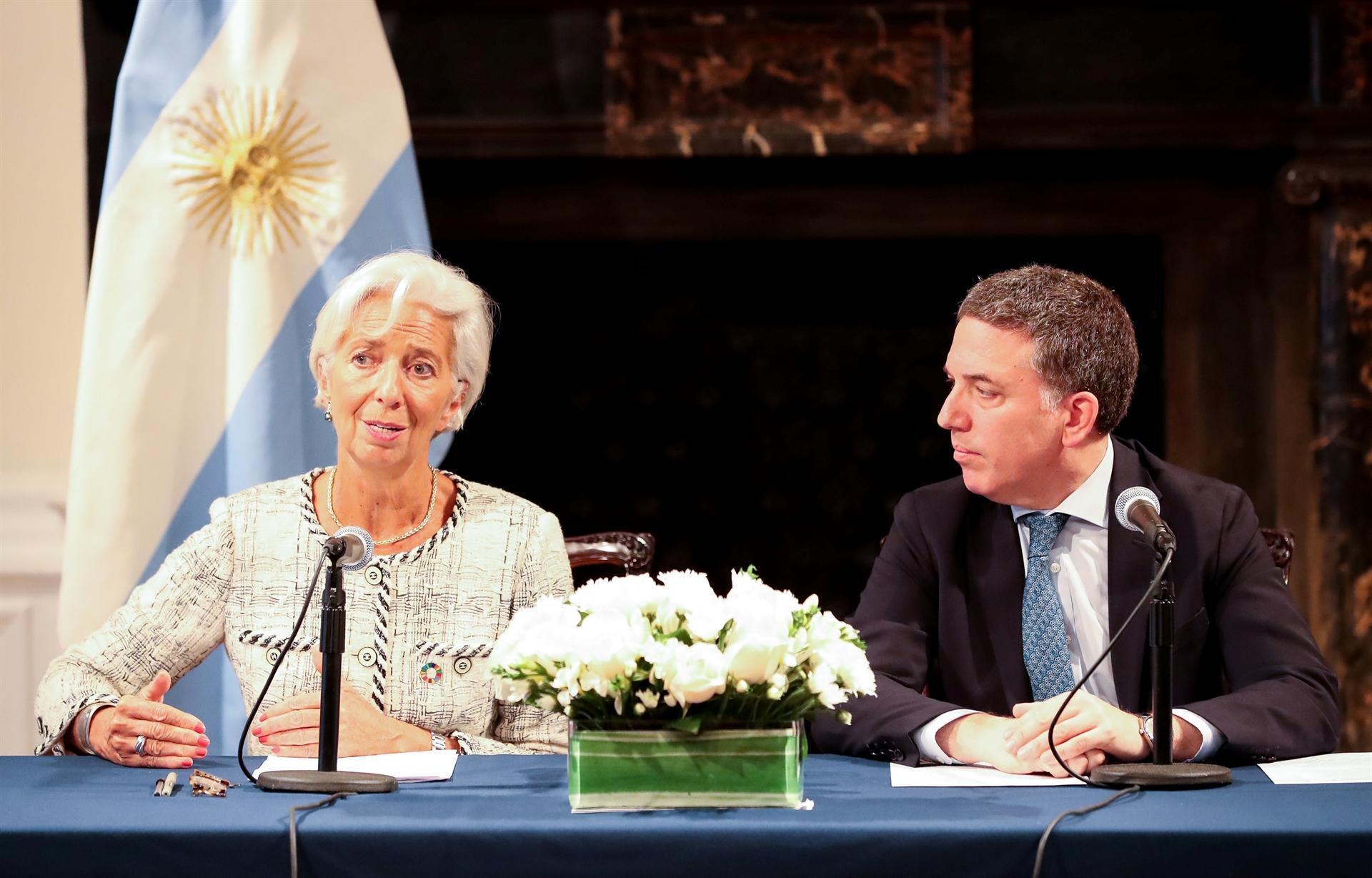
The International Monetary Fund agreed on Sept. 26 to boost its crisis loan package aimed at restoring confidence in Argentina’s struggling economy by 14 percent to $57.1 billion.
The agreement “will allow our country to leave behind the turbulent path of recent months,” said Argentina’s Finance Minister Nicolas Dujovne during a press conference with IMF Managing Director Christine Lagarde, on the sidelines of the United Nations General Assembly in New York.
Lagarde said the aim of the program was to help Argentina “tackle the challenges it faces” and support the “most vulnerable people in society.”
Argentina originally secured a $50 billion loan back in June, when an initial $15 billion tranche was handed over.
However, last month, President Mauricio Macri revealed he had asked for an accelerated disbursement of the remaining $35 billion, with another $3 billion not due until November and the remainder over the next three years.
The new deal “front loads IMF financing,” the Fund said in a statement, increasing by $19 billion the amount due to be made available up to the end of 2019: a total of $36.2 billion, according to Argentina’s finance ministry.
The ministry said that part of the agreement, which needs to be approved by the IMF’s Executive Board, included a commitment to maintain “spending on social assistance... above 1.2 percent of gross domestic product” in order to “protect the most vulnerable sectors.”
But the news was met with scorn on the streets of Buenos Aires.
“We’re getting more in debt and not correcting our mistakes. We’re spending more than we can,” said 57-year-old Daniel Pacheco, who works for a telephone company.
“Nothing will change because it’s the same politicians as always.”
Pablo Gallo, a 42-year-old lawyer, said “any agreement with the IMF” is a bad idea “for a country that wants independence.”
Lagarde praised Argentina for its “strengthened economic plan that is aimed at bolstering confidence and stabilizing the economy.”
“A central element of the authorities’ plan will be to reach budgetary balance by 2019,” she added.
The announcement of the agreement comes a day after Argentina changed its central bank president.
Some analysts claimed outgoing head Luis Caputo was at odds with the IMF over Argentina’s monetary strategy, leading to his replacement by Guido Sandleris.
Lagarde said that “persistently high inflation continues to erode the foundation of economic prosperity in Argentina” and to tackle it, the country’s “authorities will shift towards a stronger, simpler, and verifiable monetary policy regime.”
She said Argentina would “contain the supply of money, and keep short-term interest rates at their currently” world-high level of 60 percent, aiming to rapidly bring down inflation, expected to hit 40 percent by the end of the year.
She said the central bank had “agreed to adopt a floating exchange rate regime, without intervention.”
However, Sandleris said the central bank would set upper and lower limits and maintain “strict control of growth of the monetary base in order to reduce inflation.” He said a “new stage” was beginning in which “we’re leaving behind banking interventions and returning to a focus on monetary policy as an anchor.”
Argentina’s economic woes were brought on by a rapid loss of confidence in its peso currency from April.